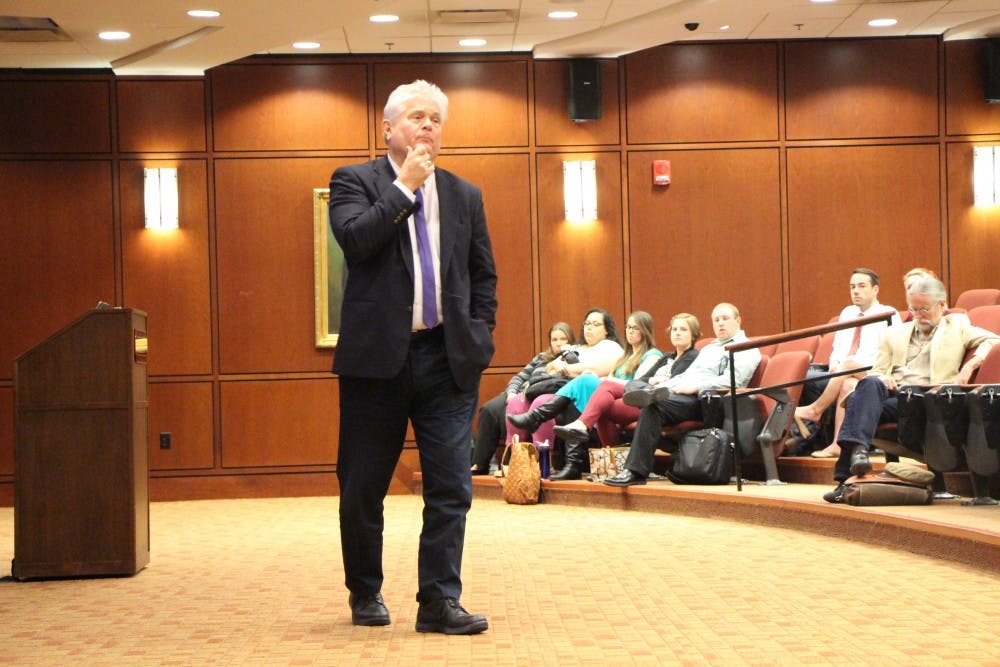Robert F. Darden visited Elon University on April18 to speak about the progression and history of gospel music. The full-time professor from Baylor University in Texas spoke to a room of students and faculty members in LaRose Digital Theatre. Phi Beta Kappa sponsored the event before its induction ceremony would commence later at night.
University Chaplain Jan Fuller introduced Darden and listed his numerous accomplishments regarding his research and writing for Black Sacred music. Fuller jokingly stated that she couldn’t speak on his talent for singing gospel music, despite his knowledge on the subject.
Darden started his lecture with an anecdote.
“When I was a kid, I was taught the phrase ‘Sticks and stones may break my bones, but words will never hurt me,'" Darden said. “I’m 62 years old, and I no longer believe that.”
Darden gave a brief history of gospel music by going back to its roots in song traditions in West Africa. The Africans taken from this land to be slaves in the United States brought their songs with them. Eventually, spirituals emerged from the song traditions as a powerful medium of uniting the enslaved.
“In those songs, there was no difference between the sacred and the profane, and the spirituals were the first protest against slavery,” Darden said.
Darden told the story of High John the Conqueror, a mythical figure adopted by African-American slaves as a spirit that supported them in their suffering.
Eventually, the spirituals had an influence on the labor unions that incorporated songs like “We Shall Overcome” into their campaigns. The Civil Rights movement also used spirituals as inspiration for its leaders.
Darden’s book "People Get Ready: A New History of Black Gospel Music" brought him fame, along with the publication of his editorial in The New York Times in 2005.
One of Darden’s projects that he’s most proud of was working at Baylor University’s library and funding $365,000 for a digitalization lab. This lab was able to save numerous vinyl records of gospel music that usually only exist in one copy.
“Libraries are Switzerland. You can’t trust anybody else,” Darden said.
Darden’s work was inspired by his curiosity for how African-Americans made it through so much discrimination and abuse. His book "Nothing but Love in God’s Water" was written after Darden tracked down the individuals who sang the gospel song of the same title.
“It has been an epic, joyful quest to see these brave people who faced the guns and stood strong with the memories of ancestors who also dealt with bayonets in their faces,” Darden said.
At the conclusion of the lecture, Darden spoke about the prevalence of gospel songs across all cultures. He cited individuals in Prague, Vietnam, African mines and the Tibetan women’s soccer team standing up for their rights through singing “We Shall Overcome.” He described the small group of Tibetan woman athletes continuing to sing as they left their field and took buses to their refugee camp in retaliation for the oppressive nature of China.
“Maybe it’s High John, maybe it’s the Holy Spirit, or maybe it’s Moses in a burning bush, but these songs are still being sung,” Darden said.


